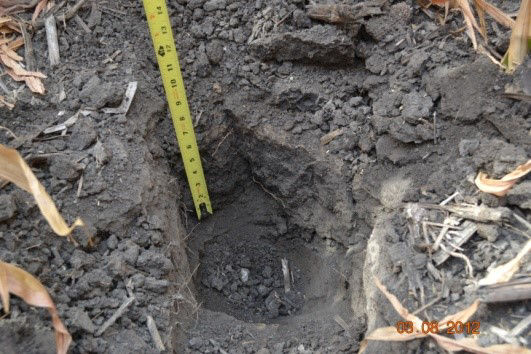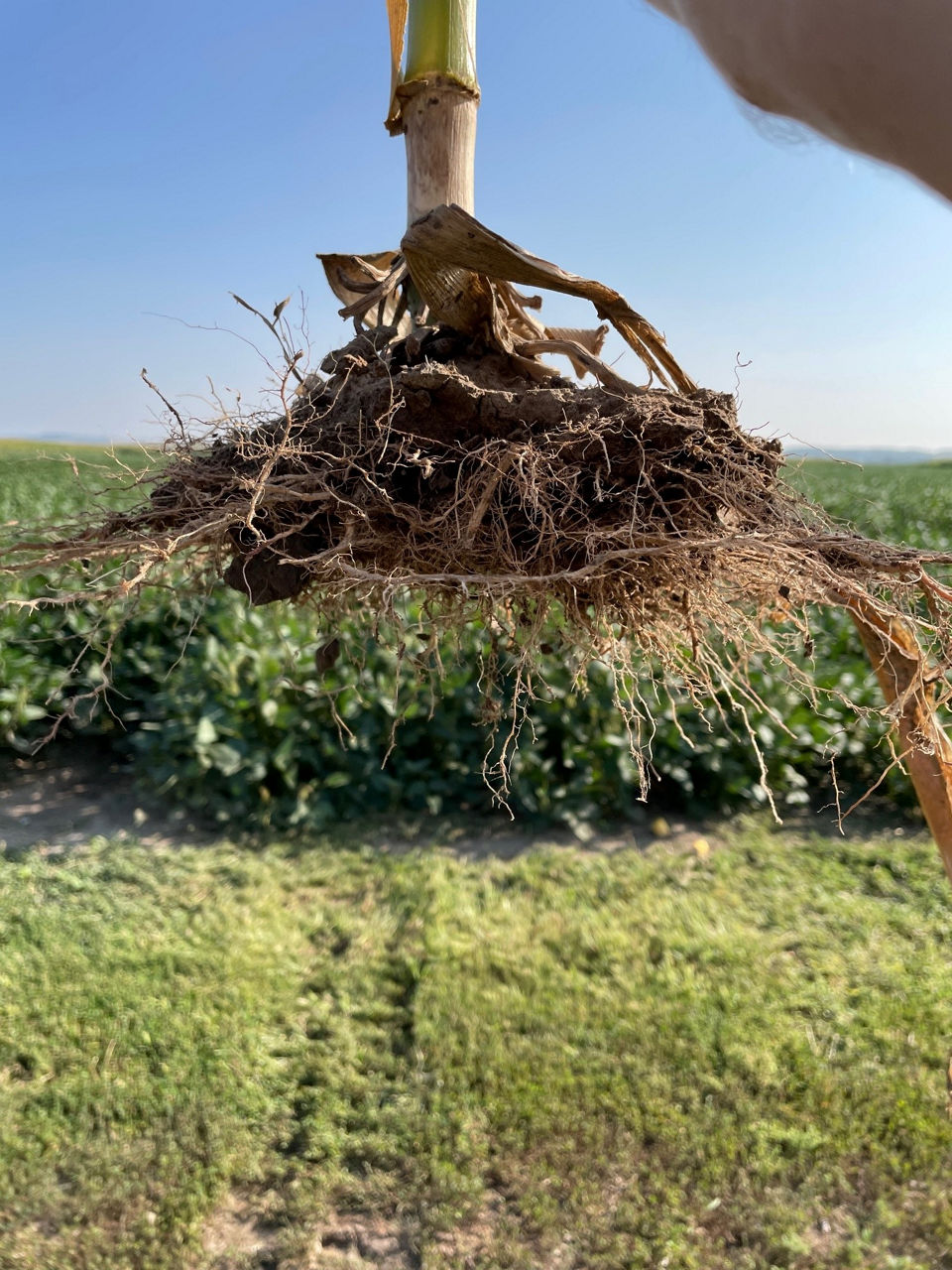Freeze/Thaw Cycles on Soil Compaction
November 21, 2023
Planting season is still months away, but field conditions during the winter can have an impact on this coming year’s yield potential. The freezing and thawing of soils can have long term effects on soil properties.
With the size of farm equipment getting bigger and heavier over time, the additional weight can have a negative outcome on soil compaction (Figure 1). This can especially be true if soils are wet during field operations. In the worst-case scenario subsoil compaction can occur at soil depths up to four feet deep.1

Compacted soils have many negative soil attributes such as reduced water infiltration, restricted root growth, and increase nutrient runoff and soil erosion (Figure 2). In compacted soils there is a loss of air space due to the reduced pores size. This lack of pore space can lead to more saturated soils, less air for root growth, increased potential for denitrification, and less water holding capacity. All these factors can have a negative effect on yield potential. Yield losses in heavily compacted soils in corn have resulted in losses as much as fifty percent.2 In drier years, soybean yields can suffer as much as 20 percent due to soil compaction.3

To help in the battle against soil compaction, some management considerations may include prevention of compaction, deep tillage, use of cover crops, no-till, weight distribution of equipment, and controlled traffic lanes to name a few.
The freeze/thaw cycles of soils that occur during the winter is an area of immense importance in the battle against soil compaction. During the winter months, soil water expands and contracts as water freezes and thaws. The forces exerted by the changes I in water phases helps open pore spaces and reduce soil compaction.1 When the water-ice temperature falls to 0° F, the psi force to break apart soil particles ranges between 25,000 to 114,000.5 In a study conducted at Montana State University Eastern Agricultural Research Center near Sidney, MT, on a clay loam soil, the compaction reduction by freeze/thaw cycle in the winter of 2009-2010, resulted in 73%, 68%, and 59% in soil depth of 0-4 inches, 4-8 inches, and 8-12 inches, respectively.4
The impact of freeze/thaw cycles on soil compaction reduction is dependent on the amount of soil water and the number of cycles. The more water in the soil profile, the better ability to alleviate compaction and an increase in the number of freeze/thaw cycles help increase the soil air space. For example, if the soil moisture is low, and it turns cold during the winter and stays cold till spring there is likely little effect on soil properties from the environment.
Even in the winter months, the environmental changes of temperature and moisture can play a key role in setting up next year’s yield potential.
Channel Agronomist
Steven Troesser
Sources:
1Sivarajan, S., Maharlooei, M., Bajwa, S.G., Nowatzki, J. 2018. Impact of soil compaction due to wheel traffic on corn and soybean growth, development, and yield. Soil & Tillage Research 175:234-243.
2Gelder, B.K., Cruse, R.M., Zhang, X.Y., 2007. Comparison of track and tire effects of planter tractors on corn yield and soil properties. Trans. ASABE 50 (2), 365–370.
3Hanna, M., Al-Kaisi, M., and Tidman, M. 2002. Soil compaction may be cutting into your yield. Integrated Crop Management. ICM News. IC-488(16). Iowa State University.
4Jabro, J.D., Iversen, W.M., Evans, R.G., Allen, B.L., Stevens, W.B., 2014. Repeated freeze-thaw cycle effects on soil compaction in a clay loam in northeastern Montana. Soil Science Society of America.
5Mechanics & forces of freezing water. What is the expansive force of freezing water. Encylopedia of Building & Environmental Construction, Diagnosis, Maintenance & Repair. InspectAPedia®.
Web sites verified 10/17/23 1110_307454
Seed Brands & Traits
Crop Protection
Disclaimer
Always read and follow pesticide label directions, insect resistance management requirements (where applicable), and grain marketing and all other stewardship practices.
©2024 Bayer Group. All rights reserved.